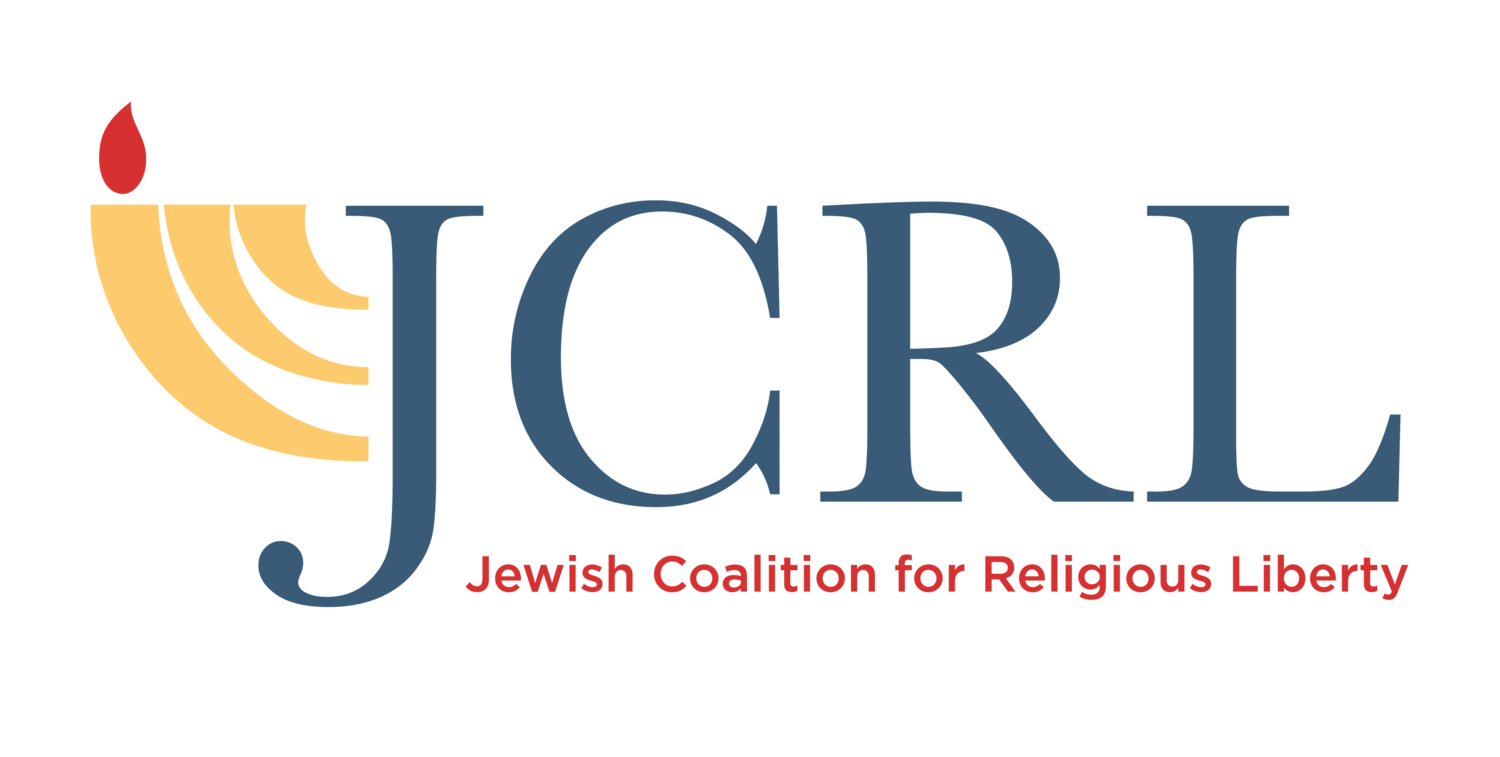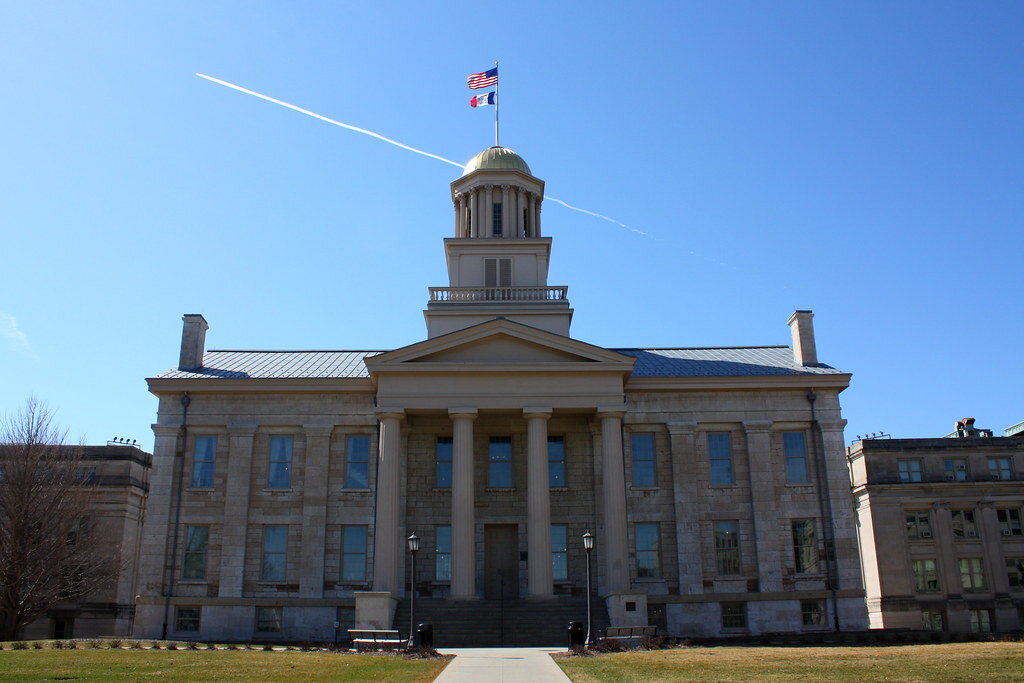Calvary Chapel v. Steve Sisolak
We argue that in-person attendance limits for houses of worship single out religious expression and unfairly discriminate against people of all faiths.
Lebovits v. Andrew M. Cuomo
We served as co-counsel with the Becket Fund in suing Andrew Cuomo and the New York state government on behalf of the Lebovits family and Bais Yaakov, a Jewish school in New York City.
Agudath Israel of America v. Andrew M Cuomo
In this case, we defend the free exercise right of a Jewish girl school against the unlawful discrimination by New York’s governor.
Gregory Tucker v. Faith Bible Chapel International
In this case we argue that the ministerial exception protects not only established majority religious traditions, but minority ones as well.
Demkovich v. St. Andrew the Apostle Parish
A former employee of a parish in the Archdiocese of Chicago is suing for alleged discrimination following his firing.
(Merits Brief) Uzuegbunam v. Preczewski
In this case, Georgia Gwinnett College discriminated against a Christian student by suppressing his right to share his faith publicly.
Lexington-Fayette Urban County Human Rights Commission v. Hands On Originals
In this brief we argue that the First Amendment protects the rights of religious business owners against compelled speech that violates their conscience.
Diocese of Lubbock v. Jesus Guerrero
In this brief we defend the church autonomy doctrine, arguing that the secular government should not be interfering in internal ecclesiastical matters pertaining to religious institutions.
Christian Mission John316 v. Passaic City
We argue that a church is entitled to a property tax exemption without needing a certificate of occupancy.
Biel v. St. James School
We argue that the ministerial exception should be understood broadly in order to cover religious leaders of all types including those who do not look like traditional Christian religious functionaries.
Intervarsity Christian Fellowship v. The University of Iowa(Eight Circuit Court)
In this case concerning whether religious groups on campus can legally require their leaders to share their faith, we argue that such religious solidarity is particularly important for Jewish groups.
Stanislaw Sterlinski v. Catholic Bishop of Chicago
We explain the importance of courts deferring to religious employers’ understanding of their faith in determining whether an employee engages in religious activity for the purposes of the ministerial exception.
New Hope Family Services v. Sheila J Poole
We argue that the desire of religious adoption agencies to place children with members of their own faith is an entirely understandable act of religious solidarity that is especially important to religious minorities.
Our Lady of Guadalupe School v. Agnes Morrissey-Berru
We argue that the ministerial exception should be understood broadly in order to cover religious leaders of all types including those who do not look like traditional Christian religious functionaries.
Tree of Life Christian Schools v. City of Upper Arlington
We highlight the importance of the Religious Land Use and Institutionalized Persons Act to religious Jews.
The Universal Church, Inc. v. Calvin Toellner
We write in favor of interpreting the Lanham Act so as to protect the names of religious institutions.
Spirit of Aloha v. County of Maui
We argue that discriminatory zoning land use ordinances against religious groups violates RLUIPA and should be abandoned.
NY v. HHS
We argue that medical professionals should not be forced to provide certain services, like abortion and sterilization, that would violate their sincere religious beliefs.
Intervarsity Christian Fellowship v. University of Iowa.
We argue that religious solidarity is particularly important for Jewish groups, and that religious groups on college campuses have the right to require their leaders to share their faith commitments.
George Q. Ricks v. State of Idaho
In this case concerning the meaning of the Free Exercise Clause, we highlight the ways in which the unduly restrictive interpretation of that clause found in Employment Division v. Smith harms Jews and other religious minorities.
(Merits Brief)Little Sisters of the Poor v. The Commonwealth of Pennsylvania and the State of New Jersey
This case helped spur the formation of the Jewish Coalition for Religious Liberty. JCRL filed an amicus brief in support of a group of Catholic nuns who simply wished to continue to care for poor retirees without violating their religion.
LITTLE SISTERS OF THE POOR V. THE COMMONWEALTH OF PENNSYLVANIA AND THE STATE OF NEW JERSEY
This case helped spur the formation of the Jewish Coalition for Religious Liberty. JCRL filed an amicus brief in support of a group of Catholic nuns who simply wished to continue to care for poor retirees without violating their religion.
St. James School v. Darryl Biel
The Ministerial Exception is once again challenged in the courts. In this case we argue that a Catholic school has the right to hire or fire employees in accordance with its religious tradition.
Espinoza v. Montana Department of Revenue
We argue that the Blaine Amendment, which enshrines religious discrimination into law, is a violation of the First Amendment and is fundamentally harmful to religious minorities.
(MERITS BRIEF)Fulton v. Philadelphia
In this case, we argue that a catholic adoption agency in Philadelphia should be free to operate in accordance with its faith without fear of government reprisals.
Bostock v. Clayton County
In this case, the petitioners argue that sexual orientation and gender identity (SOGI) should be interpreted as being part of the Civil Rights Title VII non- discrimination statute. We argue that such a radical change will threaten the religious liberties of all Americans of all faiths for generations to come.
Arlene’s Flowers v. State of Washington et al.
The free exercise of religion is a sacred right. In this brief, we argue that Arlene’s Flowers has the right to freely exercise that right in public, as well as in private, and cannot be forced to participate in religious ceremonies that violate its conscience.
Dignity Health v. Evan Minton
In this amicus brief, we argue that a private Catholic hospital in California has the right to make conscience based decisions regarding its sincerely held religious beliefs.
Uzuegbunam v. Preczewski
In this case, Georgia Gwinnett College discriminated against a Christian student by suppressing his right to share his faith publicly.
Business Leaders in Christ v. University of Iowa
The Jewish Coalition for Religious Liberty is proud to announce that it has entered an amicus brief in the case Business Leaders in Christ v. the University of Iowa.
Brush & Nib Studio v. Phoenix
In this case, the owners of an art studio were forced to consider the following dilemma: custom-design wedding art for a ceremony they could not religiously condone – or go to jail.
Pensacola v. Kondrat’yev
The Jewish Coalition for Religious Liberty is proud to announce a Supreme Court amicus brief arguing that merely being offended by a religious display is insufficient cause to create standing to bring an Establishment Clause lawsuit.
Skyline Wesleyan Church v. California Department of Managed Health Care
The Jewish Coalition for Religious Liberty joined an amicus brief in a case involving California’s attempt to coerce churches into offering elective abortion coverage in their health insurance plans.
Fulton v. Philadelphia
The Jewish Coalition for Religious Liberty filed an amicus brief in
support of Catholic Social Services of Philadelphia, arguing that they
must not be shut down simply because they wish to facilitate adoptions
in accordance with its faith.
Harris Funeral Homes v. EEOC
JCRL submitted an amicus brief urging the US Supreme Court to hear the case Harris Funeral Homes v. EEOC.
American Legion v. American Humanist Association
The Jewish Coalition for Religious Liberty is proud to announce its
filing of a brief in support of cert in the Bladensburg cross case.
Barker v. Conroy
The head of the organization “Freedom From Religion” claimed that it
was unconstitutional for Congress to open the day with a prayer and not
to allow secular invocations as well.
Whole Woman’s Health v. Smith
The Jewish Coalition for Religious Liberty filed an amicus brief in the 5th Circuit Court of Appeals, defending the Texas Catholic Conference of Bishops’ right to keep its internal religious deliberations from being shared with abortion providers.
Freedom From Religion Foundation v. Lehigh County
In this case, a group of atheists challenged the seal and flag of Lehigh County, Pennsylvania. The plaintiffs argue that the Latin cross which is present on both symbols is meant to represent and therefore endorses Christianity in violation of the Establishment Clause.
Brush & Nib Studio v. City of Phoenix (Arizona Court of Appeals – Division One)
Brush & Nib is a calligraphy company that creates customized art. Its owners are Christians who operate their business in keeping with their faith.
Chabad of Key West v. FEMA
JCRL’s predecessor, Jews for Religious Liberty, served as co-counsel with Becket in suing the Federal Emergency Management Agency on behalf of Chabad of Key West.
Lexington-Fayette Urban County Human Rights Commission vs. Hands On Originals
The Jewish Coalition for Religious Liberty joined the Religious Liberty Commission and the Kentucky Baptist convention in support of affirming those decisions. Amici demonstrated that an adherent’s faith impacts every aspect of his life and makes demands on his conscience at work as much at church.
NIFLA v. Becerra
JCRL was proud to support the First Amendment right to free speech when it submitted this brief in support of the National Institute of Family and Life Advocates.
Kondrat’yev, et al v. City of Pensacola
The Jewish Coalition for Religious Liberty, together with several other Jewish organizations filed an amicus brief in the U.S. Court of Appeals for the 11th Circuit in support of the City and urging reversal on the grounds that merely being “offended” is insufficient to confer standing on the plaintiffs.
Kennedy v. Bremerton School District
The Jewish Coalition for Religious Liberty argued that the 9th Circuit should reverse the panels decision and protect the rights of all religious people—especially those who belong to minority faiths.
Harvest Family Church v. Federal Emergency Management Agency
Jews For Religious Liberty submitted an amicus brief in the case, showing that FEMA’s policy of denying hurricane relief to religious organizations because of their religious affiliation or practice is unconstitutional under the First Amendment.
Masterpiece Cakeshop v. Colorado Civil Rights Commission
In this case, a religious Christian cake artist was sued for declining to custom-design a cake celebrating a same-sex marriage ceremony. JCRL joined and contributed to an amicus brief filed by the Whitehead Law Firm of Kansas City, MO on behalf of a number of religious groups.
Arlene’s Flowers v. State of Washington/Ingersoll
The Jewish Coalition for Religious Liberty joined an amicus brief in support of Arlene’s case, along the Washington State Catholic Conference, Imam Shahin, and the Ethics & Religious Liberty Commission.
City of Bloomfield v. Felix
In August 2017, the Jewish Coalition for Religious Liberty filed an in support of Bloomfield’s appeal. We explained that the court’s decision stigmatized the Ten Commandments, and erased a Jewish contribution to the United States. Further, the court’s analysis harms religious minorities.
Abeles v. Metropolitan Washington Airports Authority
Partnering with the Becket Fund, the Jewish Coalition for Religious Liberty filed an amicus brief in support of Susan’s case, petitioning to overturn the ruling of the Fourth Circuit on two grounds.
Gagliardi v. The City of Boca Raton
The Jewish Coalition for Religious Liberty submitted an in support of Chabad’s appeal. We explained that the City’s zoning decision does not violate the Establishment Clause. Rather, the approval to build the permit was the outcome of the regular political process.
A Formal Comment for a Department of Health and Human Services Regulation
The letter requested that the Department of Health and Human Services make a sincere attempt at accommodating organizations that objected to its abortifacient mandate on religious grounds.
Little Sisters of the Poor v. Burwell
This case helped spur the formation of the Jewish Coalition for Religious Liberty. Rabbi Mitchell Rocklin led a group of Jewish rabbis, represented by Howard Slugh, in filing an amicus brief in support of a group of Catholic nuns who simply wished to continue to care for poor retirees without violating their religion.





















































